This has been an interesting week for me. I’ve been actively commenting on some of the blogs I follow, which has resulted in a few virtual conversations with other writers.
 One of my favorite fiction writing blogs is MagicalWords.net. The site is actually a collaboration of multiple published authors, most of whom are contributors to the book How to Write Magical Words. The blog is fantasy-oriented, so I feel at home there. However, the writers who post on the blog and most of their readers have a definite bias for traditional publishing and against self publishing. I’ve been trying NOT to make every one of my comments turn into a defense of my decision to self publish, but it can be difficult at times.
One of my favorite fiction writing blogs is MagicalWords.net. The site is actually a collaboration of multiple published authors, most of whom are contributors to the book How to Write Magical Words. The blog is fantasy-oriented, so I feel at home there. However, the writers who post on the blog and most of their readers have a definite bias for traditional publishing and against self publishing. I’ve been trying NOT to make every one of my comments turn into a defense of my decision to self publish, but it can be difficult at times.
For example, A.J. Hartley recently posted about the distinction between a series, serial, and sequence of books. One of the issues that came up in the comments was whether or not you should decide in advance how many books will be part of a sequence. It was a good post and a great comment discussion — a perfect example of why I frequent that blog.
As usual, a lot of the advice in response to the questions came from the perspective of getting your book traditionally published. Agents and publishers are wary of committing to a series of books from an unknown author, so your first book pretty much needs to stand completely on its own.
Here was my comment on that subject (slightly edited):
I’m shooting for a trilogy for very specific marketing reasons. 1) It’s hard to go wrong with a trilogy in fantasy. 2) The more books you have on the shelf, the more books you sell (this is true on a virtual bookshelf as well as a physical bookshelf), mainly because… 3) If readers find an author they like, they WANT more books by that author.
I also want to know the exact number ahead of time because it will be much easier to lay out the “metaplot” that spans the trilogy. I don’t want this thing to go on so long that I die before it is finished and leave a bunch of pissed-off fans like Robert Jordan did!
Personally, I don’t give a hoot what an agent or publisher will say because I’m going to self publish [he says, dodging tomatoes]. I plan to sell the first book of the series for $0.99 (and may even offer it free at first/periodically), and the others will go for $1.99 or $2.99 in electronic form. Print versions will also be available (for a higher price of course) using POD.
All that said, I pay very close attention to what you guys tell me agents and publishers want, because agents and publishers are smart cookies. They mostly know what readers want (the mass market anyway), and their standards of quality, while falling, are still the best in the industry. I want my books to be indistinguishable from what a publisher like TOR would put out, and better if possible.
Sometimes I can’t help myself. I put in that part about self-publishing knowing the tomatoes would be tossed, and I wasn’t disappointed.
A.J. lobbed this one my way…
hmmm… well, you know what I’m going to say. I don’t think the marketing argument applies to self-pubbed e-books. I just don’t see how you draw attention to your books in a crowd of the 750,000 other self-pubbed e-books which will appear next year without some other built in draw which probably has nothing to do with content at all. I’d be delighted if you prove me wrong, of course, and wish you the very best of luck with it.
I didn’t respond to his on Magical Words because I’ve learned that nothing I could say in the defense of self publishing has any impact there, and it just seems to stress out the crowd.
Here’s what I wanted to say…
There’s no argument you can make about marketing a self-published book that you can’t also make about a traditionally-published book, with one exception: anything related to book stores.
Yes, a self-published book has to compete with other self-published books. But that figure isn’t 750,000, it is the small percentage that fall into your niche. Still a large number, but much less frightening.
Likewise, a traditionally published book has to compete with the other 250,000 traditionally published books, or at least the percentage that fall into your niche. It’s the same deal, and no easier to overcome.
What’s more, if you want to talk e-books, and that’s really the market I’ll be dealing with, then all traditionally-published books are competing against self-published books as well, and they are taking a beating on price. Big publishers typically sell e-books for $6.99 or more, and they have to compete with self-published titles that often sell from $0.99 to $4.99. Look at the Kindle top 100 in virtually any fiction category and you’ll see what I mean: you’ll find a lot of self-published books competing quite successfully against traditionally published books.
In the e-book market, big publishers are operating at a disadvantage. For readers, it comes down to the quality of the read versus the price. If the quality of my book compares sufficiently to that of the big publishers, my price will make choosing my books over a traditionally published book a no-brainer. My readers will be able to get my ENTIRE trilogy for about the same price as just ONE traditionally-published book. Meanwhile, my traditionally-published competitor makes less than 20% on each sale, while I make 35% to 70%.
In the end, time will tell who is right and who is wrong here. What I do know is that making the decision to self-publish allows me to publish exactly what I believe my readers want, regardless of whether or not those readers can support me with blockbuster-level sales. Big publishers can’t afford to publish books that don’t have the potential to be blockbusters. I also have total control (and responsibility) over the quality of my books, and I intend to make them top-notch.

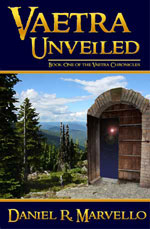
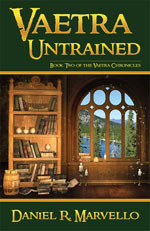
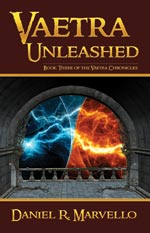
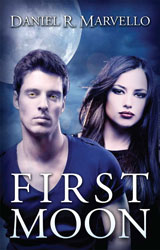
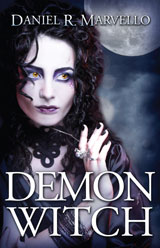
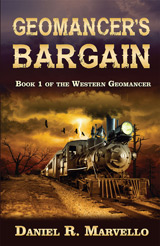
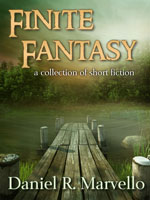
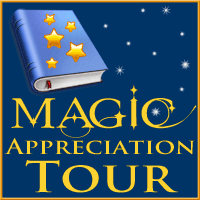

I just switched from Magical Words channel to your site spontaneously, reading one of your comments over there. I scrolled through your extensive blog which seems to be quite informative, searching for inspiration to get into fantasy worldbuilding in a more serious way (but with the main focus on roleplaying and game authoring). I think, I will take my time to have a closer look at your articles, because I get a sense of willpower just from viewing your long entries … .
I just want to say, that you might be on the very right track to get published in an economically wise way. ALL media will sooner or later concentrate IN THE INTERNET. Rather sooner than later, I suppose. You see this development in the music, book, film and game market along the digitalization of "materialized" artwork. No wishes can stop this process, only the failure or destruction of the digital infrastructure could. In the game market at least there seems to be no other logical way to publish than digital online self-/POD-publishing for the same reasons you mentioned.
I wish you joy and luck with your writing work.
paladin
(Please, excuse any simplicity/errors in my English prose – I am not a native speaker of web’s Lingua Franca.)
Paladin: Thanks for your comments.
I find it interesting that you are focusing on roleplaying and game authoring for your worldbuilding and writing. Gaming was actually the inspiration for me starting my first fantasy novel. I was amazed at how rich and enjoyable the gaming environment was (I was playing Oblivion at the time), and I appreciated the work that went into the backstory. I decided it was time to go back to creating my own stories, and I started with ideas that grew out of my Dungeons and Dragons days.
I also agree with you that no amount of wishful thinking is going to save traditional publishing. The digital transition is gaining momentum, and the traditional gatekeepers no longer offer a compelling partnership for today’s authors.